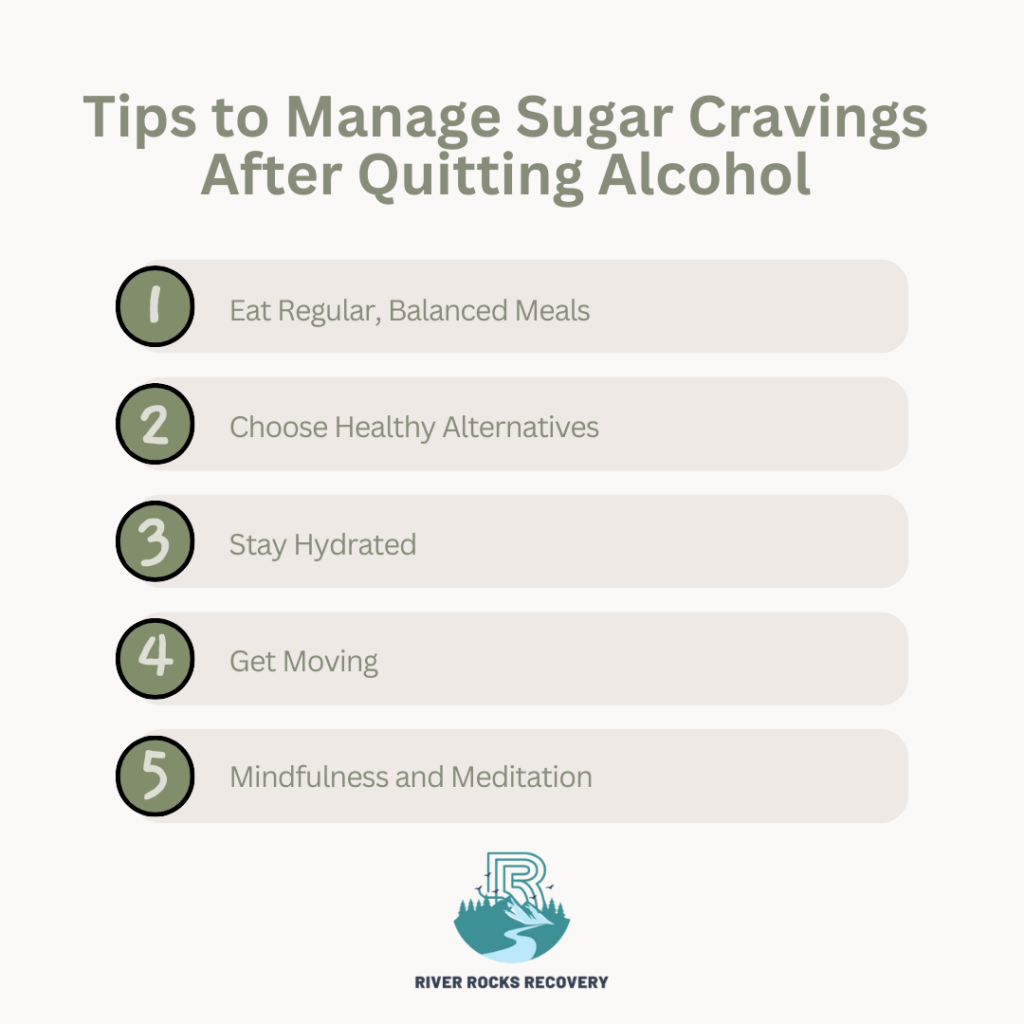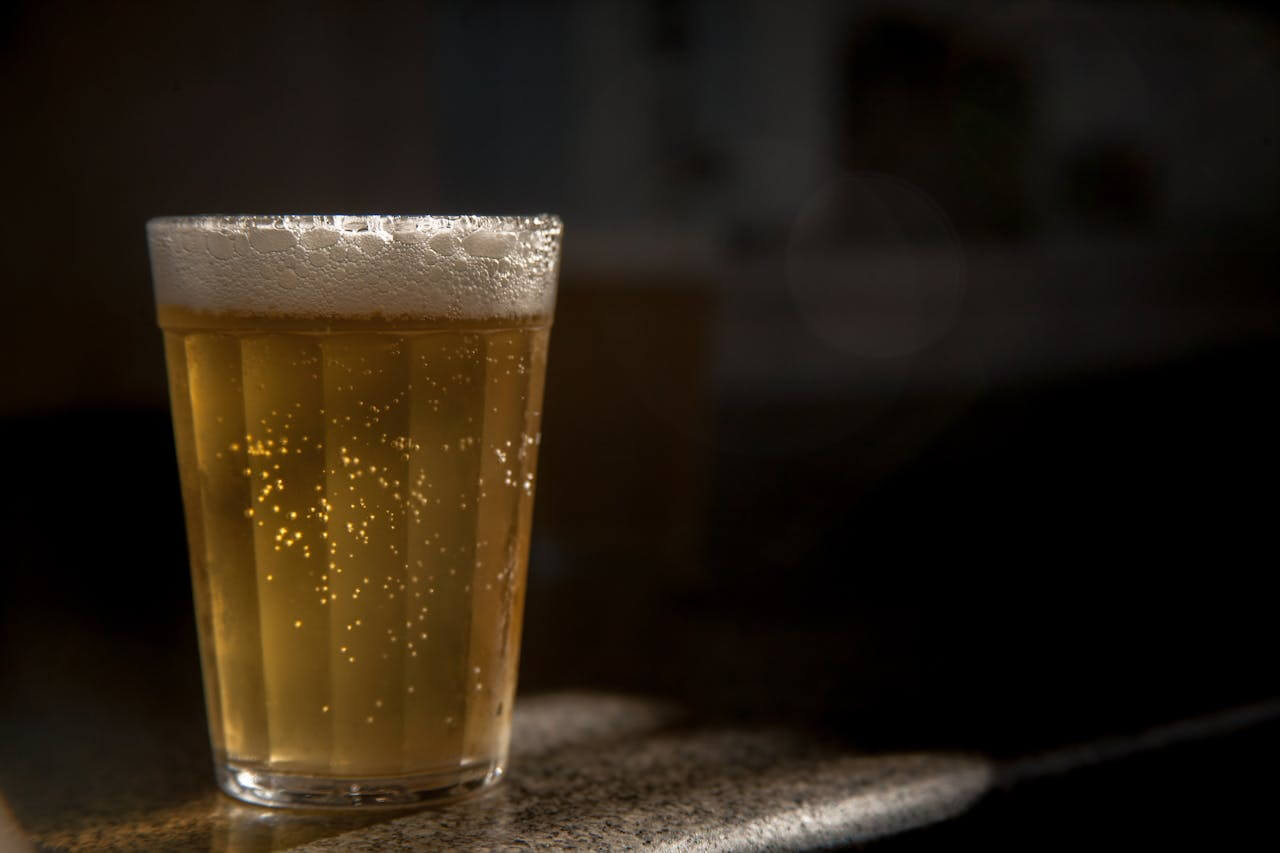When someone quits alcohol, they may experience various changes in their body and cravings, with sugar cravings being one of the most common. This occurs because alcohol is loaded with sugars, and when you stop drinking, your body may crave that lost sugar intake. In this post, we’ll dive into how to manage those sugar urges after quitting alcohol and maintaining a healthier lifestyle.
Why Do Sugar Cravings Happen After Quitting Alcohol?
When you stop drinking alcohol, your body undergoes several adjustments. Alcohol contains high amounts of sugar, which can impact the way your brain processes dopamine—the chemical responsible for pleasure. As your brain becomes used to getting those pleasurable feelings from alcohol, it may begin to crave sugar as a substitute. For many, this can lead to intense urges for sugary snacks and desserts.
In addition, people often use sugar to soothe themselves during recovery from alcohol addiction. It becomes a replacement for alcohol, as sugar can provide similar bursts of pleasure.
The Impact of Sugar Cravings on Recovery
While indulging in a sweet treat here and there may seem harmless, excessive sugar intake can negatively impact your health. It can lead to weight gain, increase the risk of diabetes, and even affect your mood and energy levels. Moreover, relying on sugar as a replacement for alcohol may make it harder to maintain long-term sobriety. Understanding how to manage these cravings is key to staying on track during recovery.
At Addiction Treatment Center Ohio specialized Addiction Treatment Programs are designed to help individuals overcome not only their alcohol addiction but also address the underlying factors contributing to sugar cravings.
Tips to Manage Sugar Cravings After Quitting Alcohol
1. Eat Regular, Balanced Meals
One effective way to manage sugar cravings is to eat regular, balanced meals. When your body is well-nourished, it’s less likely to crave quick fixes like sugary snacks. Include protein, healthy fats, and fiber-rich foods in your meals to keep your blood sugar levels stable. This will reduce the urge to reach for sweets. Many Addiction Therapy Programs teach people how to manage their diet as part of the recovery process, giving them tools to make healthier choices.
2. Choose Healthy Alternatives
Instead of reaching for candy or baked goods, opt for healthier alternatives to satisfy your sweet tooth. Fresh fruits like berries, apples, and bananas contain natural sugars, which can help curb cravings without causing blood sugar spikes. Additionally, snacks like yogurt, nuts, or dark chocolate (in moderation) can provide that sweetness while offering nutritional benefits. Participants in Partial Hospitalization Program or Intensive Outpatient Program often receive guidance on making better food choices, helping them manage both their recovery and overall health.
3. Stay Hydrated
Sometimes, sugar cravings can be mistaken for dehydration. Make sure you’re drinking enough water throughout the day to avoid confusing thirst with hunger. A glass of water can help curb cravings and improve your overall well-being. Many Outpatient Treatment Programs encourage staying hydrated as part of a holistic approach to recovery.
4. Get Moving
Exercise is a great way to manage cravings. Physical activity releases endorphins, which help to improve your mood and reduce the desire for unhealthy comfort foods like sugar. Whether it’s a brisk walk, a workout session, or yoga, moving your body can help take your mind off cravings while boosting your physical and mental health. Many Addiction Treatment Programs integrate exercise into their routines to support the recovery process.
5. Mindfulness and Meditation
Cravings, whether for sugar or alcohol, are often temporary. Learning how to sit with those feelings and acknowledge them without giving in can be very empowering. Practicing mindfulness and meditation can help you become more aware of your cravings and manage them without acting impulsively. Many Addiction Therapy Programs include mindfulness techniques to help individuals control urges and stay focused on their recovery.

The Role of Addiction Treatment in Managing Cravings
Managing sugar cravings after quitting alcohol can be tough, but with the right support, it’s possible. At Ohio Addiction Treatment Center, individuals receive comprehensive care through Addiction Treatment Programs that not only focus on overcoming addiction but also address the lifestyle changes that come with sobriety.
Whether you’re participating in a Partial Hospitalization Program, Intensive Outpatient Program, or an Outpatient Treatment Program, the goal is to help you stay sober while maintaining a healthy lifestyle. The structured support and therapy offered at these programs ensure that individuals have the tools they need to cope with both alcohol and sugar cravings.
Seeking Help for Alcohol Recovery and Beyond
If you’re struggling with sugar cravings after quitting alcohol, it may be a sign that you need additional support. Programs like those offered at Addiction Treatment Center Ohio provide personalized care to help you navigate the challenges of recovery. These programs offer therapy, nutritional advice, and other resources to help you manage cravings and avoid turning to sugar as a replacement for alcohol.
Recovery is about more than just quitting alcohol; it’s about creating a healthy, balanced life. With the right strategies and support from professionals at Ohio Addiction Treatment Center, you can overcome sugar cravings and stay on track with your sobriety.
Conclusion
Quitting alcohol is a major achievement, but it’s common to face sugar cravings as your body adjusts to sobriety. By making healthy food choices, staying hydrated, exercising, and practicing mindfulness, you can manage those urges and maintain your recovery. And with the help of Addiction Treatment Programs offered by Addiction Treatment Center Ohio, you’ll receive the tools and support you need to build a healthier, more balanced life free from addiction.
If you’re ready to take the next step in your recovery, consider reaching out to an Addiction Treatment Center Ohio for more information on how their programs can help you manage cravings and achieve long-term sobriety.
FAQ on Managing Sugar Cravings After Quitting Alcohol
Why do I crave sugar after quitting alcohol?
Craving sugar after quitting alcohol is common due to changes in brain chemistry, emotional triggers, and the body’s need for quick energy sources.
How can I effectively manage sugar cravings?
You can manage sugar cravings by practicing mindful eating, staying hydrated, incorporating healthy alternatives, and engaging in regular physical activity.
Are there healthy alternatives to satisfy my sweet tooth?
Yes! Healthy alternatives include fruits, nuts, yogurt, or dark chocolate, which can provide sweetness without the negative effects of refined sugar.
When do cravings for sugar typically occur?
Cravings can occur at any time, especially during emotional stress, fatigue, or social situations where others are consuming sugary foods.
Should I seek professional help if cravings are overwhelming?
If your cravings become overwhelming or lead to unhealthy eating patterns, consider seeking guidance from healthcare professionals or support groups for additional help.
What role does nutrition play in managing cravings?
A balanced diet rich in whole foods, including proteins, healthy fats, and complex carbohydrates, can stabilize blood sugar levels and reduce cravings.
How can support programs help with cravings?
Support programs provide accountability, encouragement, and strategies to cope with cravings, making it easier to maintain sobriety during recovery.




























